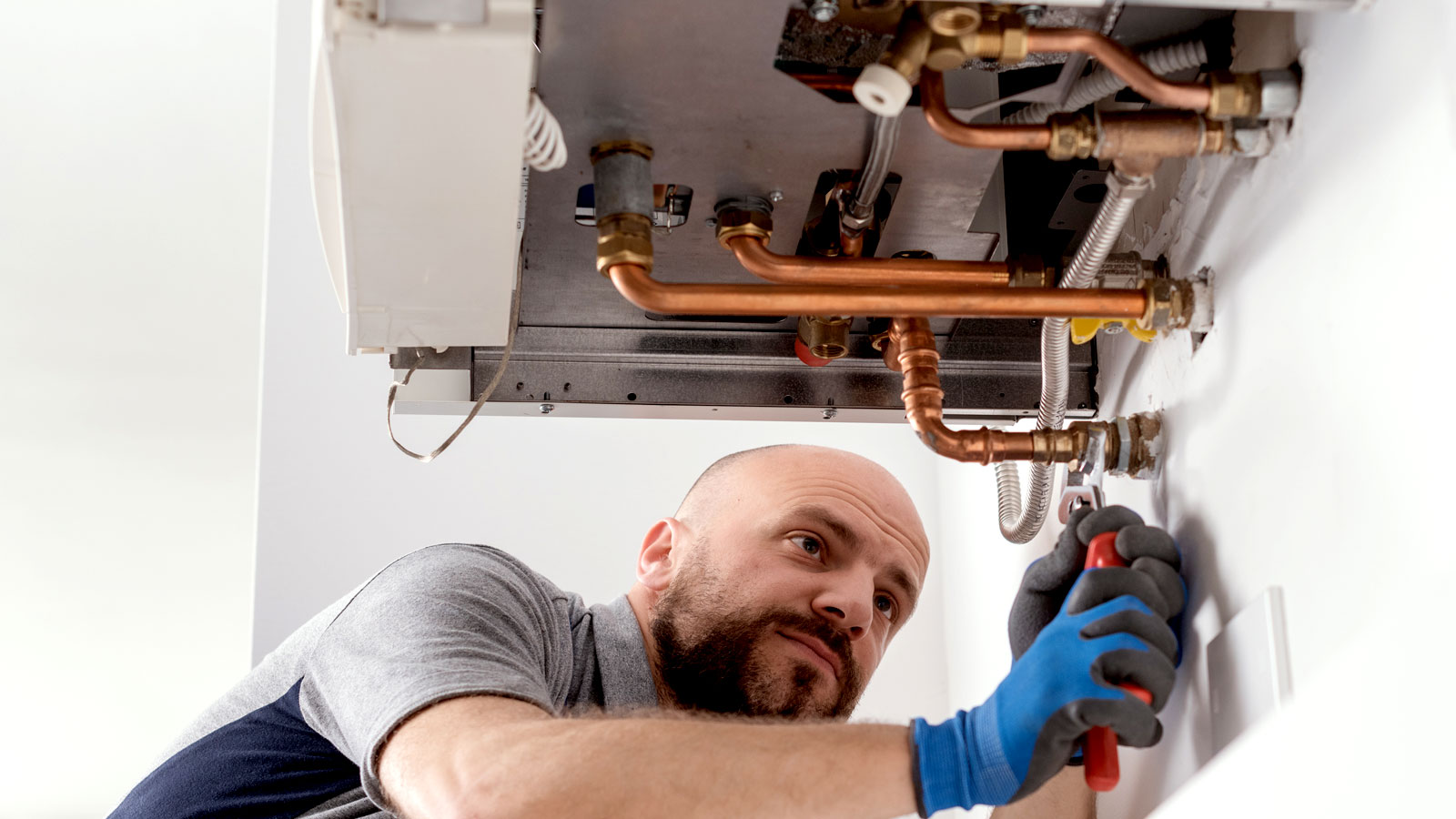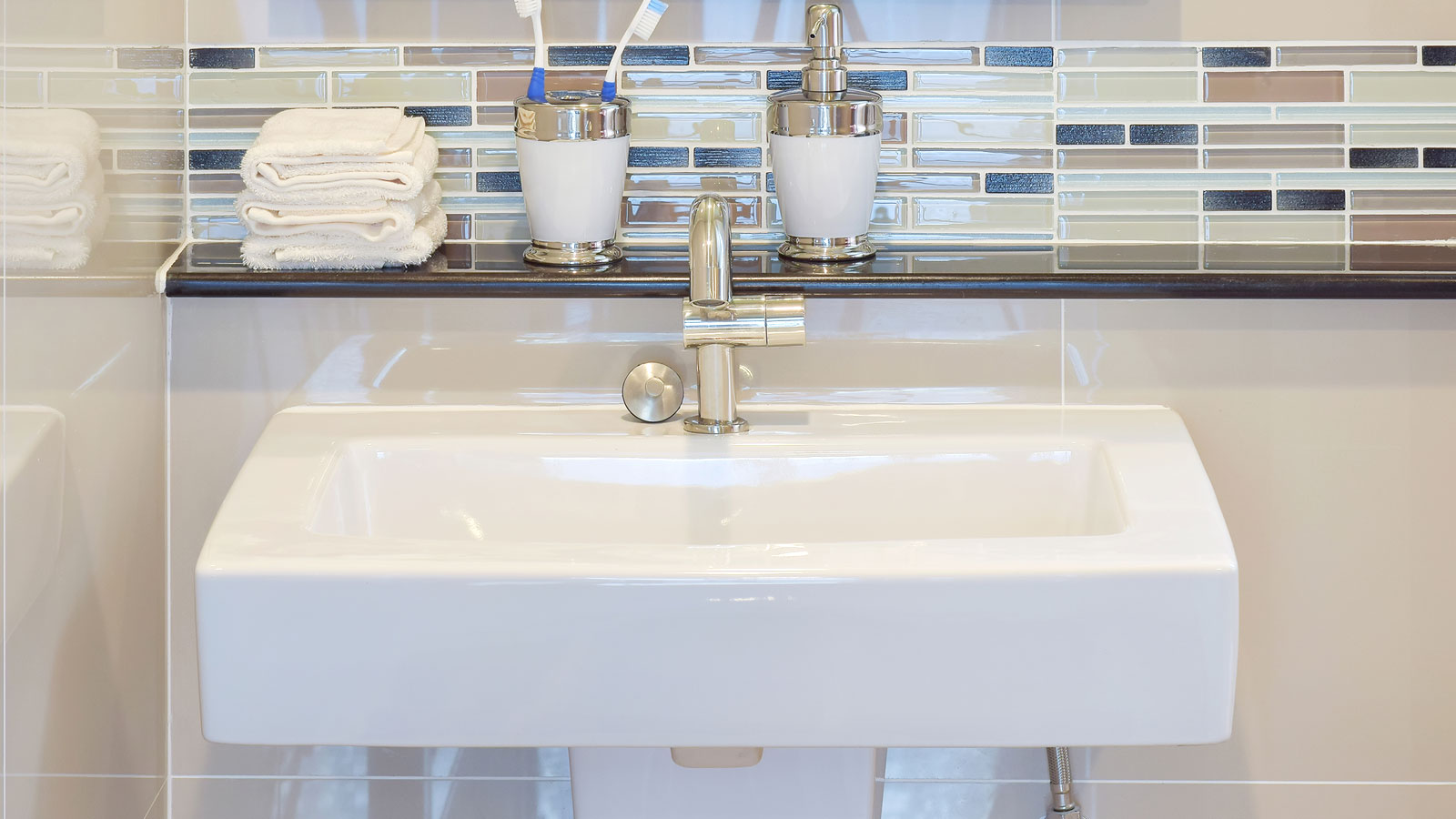How much is a new boiler? Discover what you can expect to pay
Need a new boiler? Then you are probably asking yourself How much is a new boiler? Here we reveal the costs for a new gas or oil boiler

Flashing error codes, no pressure and fluctuating temperatures can mean the need for a new boiler is just around the corner. And when your hot water and heating fails, the first question that comes to mind is probably: how much for a new boiler?
When it comes to replacing a boiler, you know it's not going to be cheap. Different types of boilers bring with them different costs, and then there's installation to think about as well.
Here we look at the factors that affect the price of a new boiler, what you can expect to pay, as well as the cost of installation and any additional costs.
Factors that affect new boiler cost
“The price of a boiler depends on the type, whether it be a combination, system or open vent boiler. It also depends on the size or output of the boiler.” explains Mark Wilkins, Training and Technologies Director at Vaillant. Here we take a quick look at what can make a difference to the price you pay.
1. Boiler type and model
Boiler prices vary depending on type and model. Combi boilers are all in one units and are typically the least expensive. While other types of boilers such as conventional and system boilers need additional elements, which push up the overall cost. A top of the range model will have different features to an entry level model, which will add to the cost.
2. Size
Larger homes need a larger boiler, which will affect the cost. Larger boilers typically have a larger capacity to ensure that they work efficiently.
3. Efficiency rating
Check the efficiency rating of a boiler. As a general rule more efficient boilers cost more up front, but will offer lower energy bills. New boilers are A-rated and offer 90% efficiency. A+, A++ and A+++ rated boilers add even more efficiency.
Bring your dream home to life with expert advice, how to guides and design inspiration. Sign up for our newsletter and get two free tickets to a Homebuilding & Renovating Show near you.
4. Brand
Like most products, different brands offer different qualities. More expensive boilers typically offer better quality components, and a longer lifespan. Budget boilers will have cheaper components that will typically need replacing sooner.
5. Warranty
A warranty typically means how long a manufacturer will repair a boiler after installation. Shorter warranties reduce the price of a boiler, while longer warranties will increase the price. Look for at least a 7-year warranty.
What is the average price of a boiler?
Gas boilers at the budget end of the price range can be purchased for around £500-£600, but can cost as much as £3000 depending on different factors. Oil boilers are typically more expensive starting at around £1000 with high end costs around £4000. Biomass boilers start at around £4000 but can cost as much as £10000+.
What is the average cost to install a new boiler?
“Obviously every job is different”, shares Duncan Craig, owner of MaxGas Boiler Services. “But a straight swap for a combi boiler and horizontal flue would cost around £1800 for a cheaper boiler with no upgrades, filters or scale reducers etc as already in place. On the upper end a top end Vaillant with smart controls, new filter etc could run to about £4000 including labour. If a power flush is needed then this would be an additional cost on top.” The prices for other popular gas boiler types – system, conventional – typically sit within this price range as well.
Oil boiler prices can be a little higher with the average price including installation being around the £4000 mark. But again, factors such as type, size and how easy/complicated it is to install will have an affect on the overall cost. Get a few quotes from local trades to help give you a guide.
Biomass boilers are part of a biomass heating system that use natural fuel resources such as wood pellets to create heat and hot water. Expect to pay around £4000+ for a heating system with installation adding an extra £2000-£10000 to the overall cost.
What type of boiler do I need?
The standard option for a residential home is gas or oil. Gas boilers are by far the most common option with oil boilers typically found in rural areas where it’s difficult to get connected to the mains gas grid.
If on the mains gas grid the common options are combi, system and conventional. Combi boilers are popular due to their cost, size and ease of installation. These are typically suited to smaller homes with around ten or less radiators.
Conventional boilers use separate tanks and a pump to move water around the system. These are ideal for larger homes with more than one bathroom. A system boiler uses a water cylinder to store and heat water and is a good choice for larger homes with one or more bathrooms with high pressure showers.
Can I get help with the cost of a new boiler?
There are a few schemes available that can help with the installation of a new boiler. The ECO (Energy Company Obligation) scheme looks to help low-income households improve the energy efficiency of their homes to reduce bills. But as you might expect there is a criteria to meet to be eligible. Check the Help from your energy supplier page on the government website.
The Boiler Upgrade Scheme offers grants to people who are looking to upgrade to a more sustainable form of heating. Current grants include £7500 towards the installation of an air source heat pump or ground source heat pump, and £5,000 towards a biomass boiler. Note, you cannot get a grant for a hybrid heat pump system (i.e. a gas combi boiler and air source heat pump).
FAQs
How long does it take to install a new boiler?
“A boiler replacement can be very straightforward but it all depends on whether any other work needs carrying out on the heating system”, shares Mark Wilkins, Training and Technologies Director at Vaillant.
“A like-for-like simple boiler swap can normally be completed in a day. We always recommend speaking to your installer to confirm the timeframes of your boiler replacement.”
How much do new radiators cost?
Installing new radiators is an often forgotten cost when installing a new boiler. It’s not always critical that you invest in new radiators at the same time, but it is recommended, especially if the radiators are over five years old. Radiators rust and small bits of rust can get into the boiler which can lead to issues and expensive fixes. Consult with your installer to see what they think.
If you do need to invest in new radiators, expect to pay around £100 per radiator for standard white radiators. Prices will differ depending on size, type and brand. Column and designer radiators will typically be two or three times the cost of a standard radiator.
To keep a new boiler working at its best it will need to be serviced regularly. Check out our boiler service costs guide to find out how much you can expect to pay. To help save on running costs and energy bills a simple DIY option is to fit thermostatic radiator valves.
Steve Jenkins is a freelance content creator with over two decades of experience working in digital and print and was previously the DIY content editor for Homebuilding & Renovating.
He is a keen DIYer with over 20 years of experience in transforming and renovating the many homes he has lived in. He specialises in painting and decorating, but has a wide range of skills gleaned from working in the building trade for around 10 years and spending time at night school learning how to plaster and plumb.
He has fitted kitchens, tiled bathrooms and kitchens, laid many floors, built partition walls, plastered walls, plumbed in bathrooms, worked on loft conversions and much more. And when he's not sure how to tackle a DIY project he has a wide network of friends – including plumbers, gas engineers, tilers, carpenters, painters and decorators, electricians and builders – in the trade to call upon.

